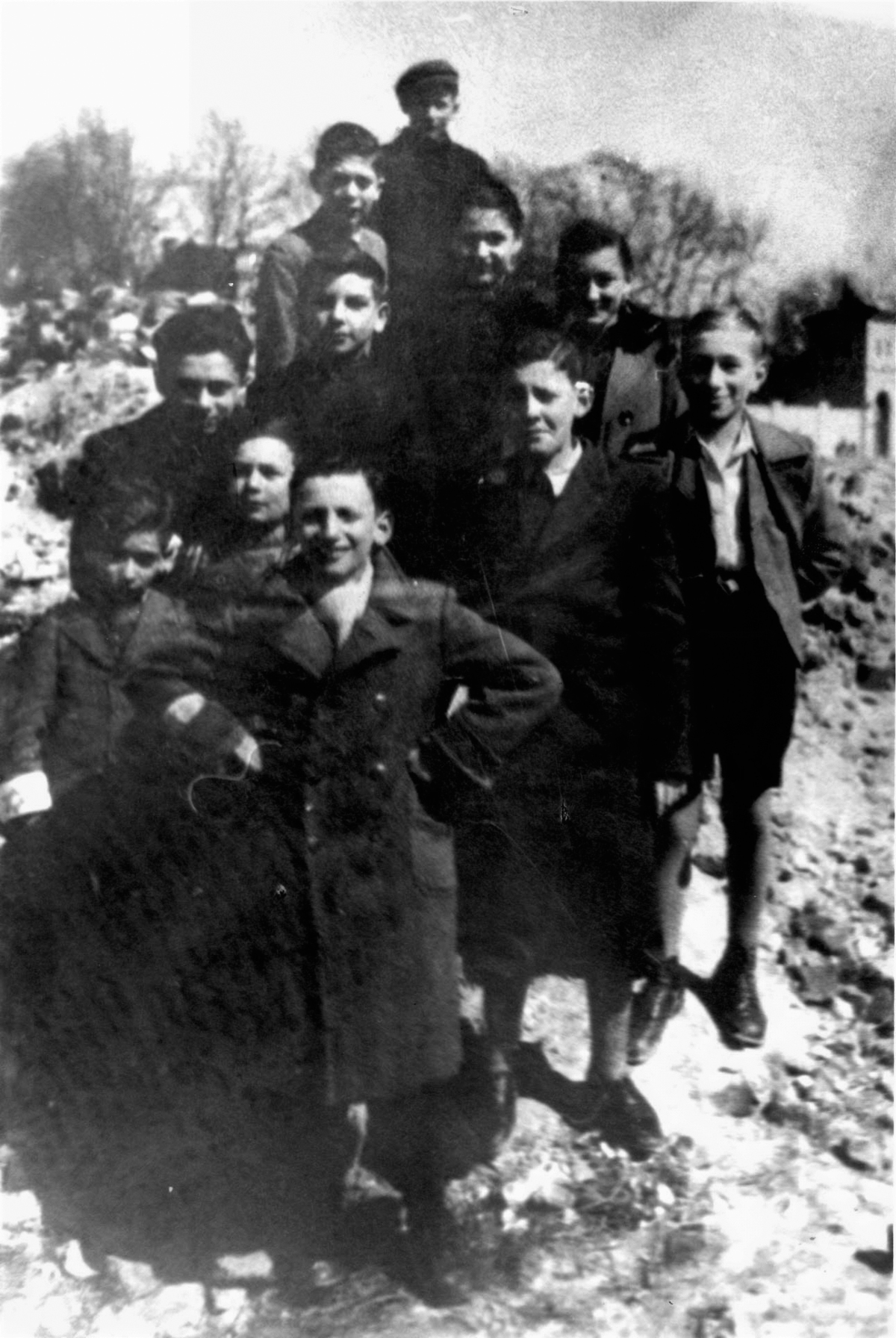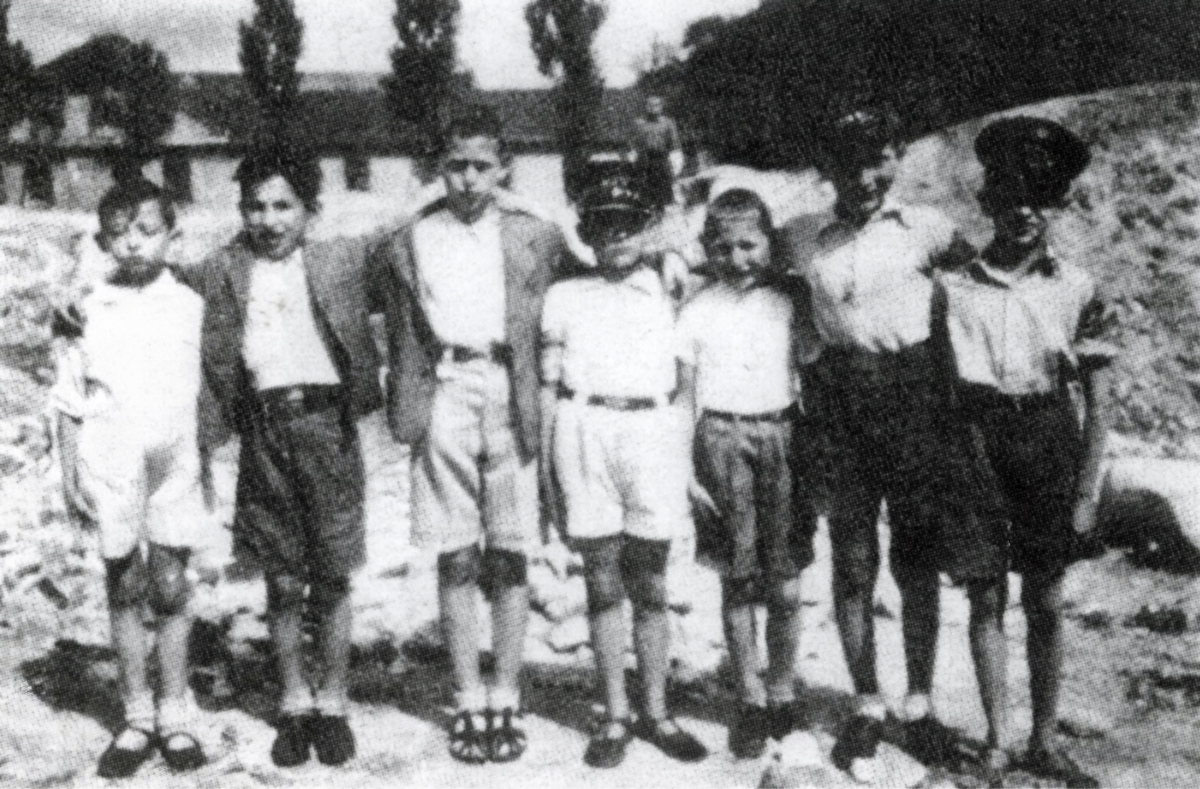On 5 September 1939 the Germans occupied Piotrków Trybunalski. At that time there were 10,000 Jews living in the city. During the first two days of the occupation, the Germans murdered dozens of the city’s Jews, who had been placed under curfew and allowed to walk in the streets for only two hours a day. Sale of food to Jews was forbidden, even by Jewish-owned businesses, and the restriction was enforced by German soldiers who were assisted by Polish informers. The theft of Jewish-owned property also began with the occupation, and was aided by Polish informers and the local German population (the Volksdeutsche), who pointed out Jewish-owned stores and warehouses. Jewish storeowners were forced to open their stores to serve the Germans and their apartments were looted by German soldiers. They were required to pay considerable sums of money to the Germans, and to provide them with large quantities of food, merchandise and raw materials for industry. Jewish houses were handed over to the Germans, and German managers were installed in Jewish businesses. In March 1940 this process was expedited when every Jew in the city was forced to declare his property.
Clockwise: Lolek Altman, Rutka from Lodz - murdered in Treblinka, Roth Kriger Horowicz - survived, Kuba Meilshpeis - murdered in Treblinka, Julek Miller - survived, Erlich Fredeck - survived, Jerzy Poznanski - a cousin of Ytzhak Reichenbaum – survived, Beniek Flato - murdered in Treblinka, Wecio Markowicz - murdered in Treblinka, Hendel Heniek - survived, Ytzhak Reichenbaum – survived and identified himself in the photograph.
Yad Vashem Photo Archives 55CO7_
The German occupation also brought with it the practice of kidnapping of Jews for slave labor. Several months later, from December 1939, the Germans began demanding a daily quota of one thousand Jewish men between the ages of 16 and 60, who were to serve as forced laborers in construction, earthworks and agriculture. These Jews were recruited by the Judenrat’s Labor Department. Affluent Jews who wished to evade service as forced laborers paid the Judenrat, which in turn paid the Jews who were conscripted. The work was accompanied by physical abuse meted out by the Germans, for which reason some Jews refused to join the labor units. At times, when the work quotas were not filled, the Germans would conduct raids, chasing Jews down the city streets in order to make the quota. In an attempt to put a stop to these manhunts, the Judenrat assisted the Germans in completing the work quotas. In this manner hundreds of Jewish men were sent out of the city to labor camps in the Lublin district. Piotrków Trybunalski’s chief rabbi, Rabbi Moshe Chaim Lau, along with other public figures in the Jewish community, organized a shipment of food and clothing to those Jews incarcerated in the forced labor camps. They even managed to redeem several of them by paying a ransom.
In October 1939 the German district chief ordered the Jews of the city to wear a Yellow Star on the back of their clothes. At the beginning of December the mayor instructed the Jews, including Jews who had converted to Christianity and the children of mixed marriages, to wear an armband bearing the word “Jude” (Jew). That same month, the Jews of the city were made to wear a white armband with a blue Star of David.
From the beginning of the Nazi occupation, gathering for prayer was banned and the Jews of Piotrków Trybunalski held their collective prayers in secret. The Great Synagogue and the batei midrash (study halls) ceased to operate almost entirely, and most of the prayers were held in the shtieblach (small prayer rooms) and in private locations. In late 1939, the Germans arrested Jewish men and ordered them to clean the city streets and public laboratories using their (tallitot) prayer shawls. 60 Jews were arrested and sent to concentration camps in Germany, from which they were released a month later. During this time the Germans discovered a number of batei midrash, damaging the Torah scrolls and looting the silver ritual objects they found. The Great Synagogue and one of the municipal batei midrash were converted into camps for Jewish and Polish prisoners. In November 1939 the Germans transferred the prisoners elsewhere, and destroyed the buildings. The Jewish cemeteries of Piotrków Trybunalski were also destroyed – the trees were cut down, and the tombstones used to pave roads and sidewalks.
Rabbi Lau managed the affairs of the Jewish community, together with other public figures and a number of clerks. In October 1939 a Judenrat was established in the city. Most of its members were Bundists, former leaders of the Jewish community. In the spring of 1940 a Jewish Order Police was created; it numbered several dozen members, most of whom appear to have been German-speaking Jewish refugees. The members of the Judenrat, led by Zalman Tannenberg, tried to use their position to help the Jewish public. By employing bribery, personal connections and partial concessions, they succeeded in moderating the persecutions, lowering the sums of the monetary fines the community was obliged to pay, and even releasing a number of prisoners. Most members of the Judenrat were active in the anti-German resistance.





